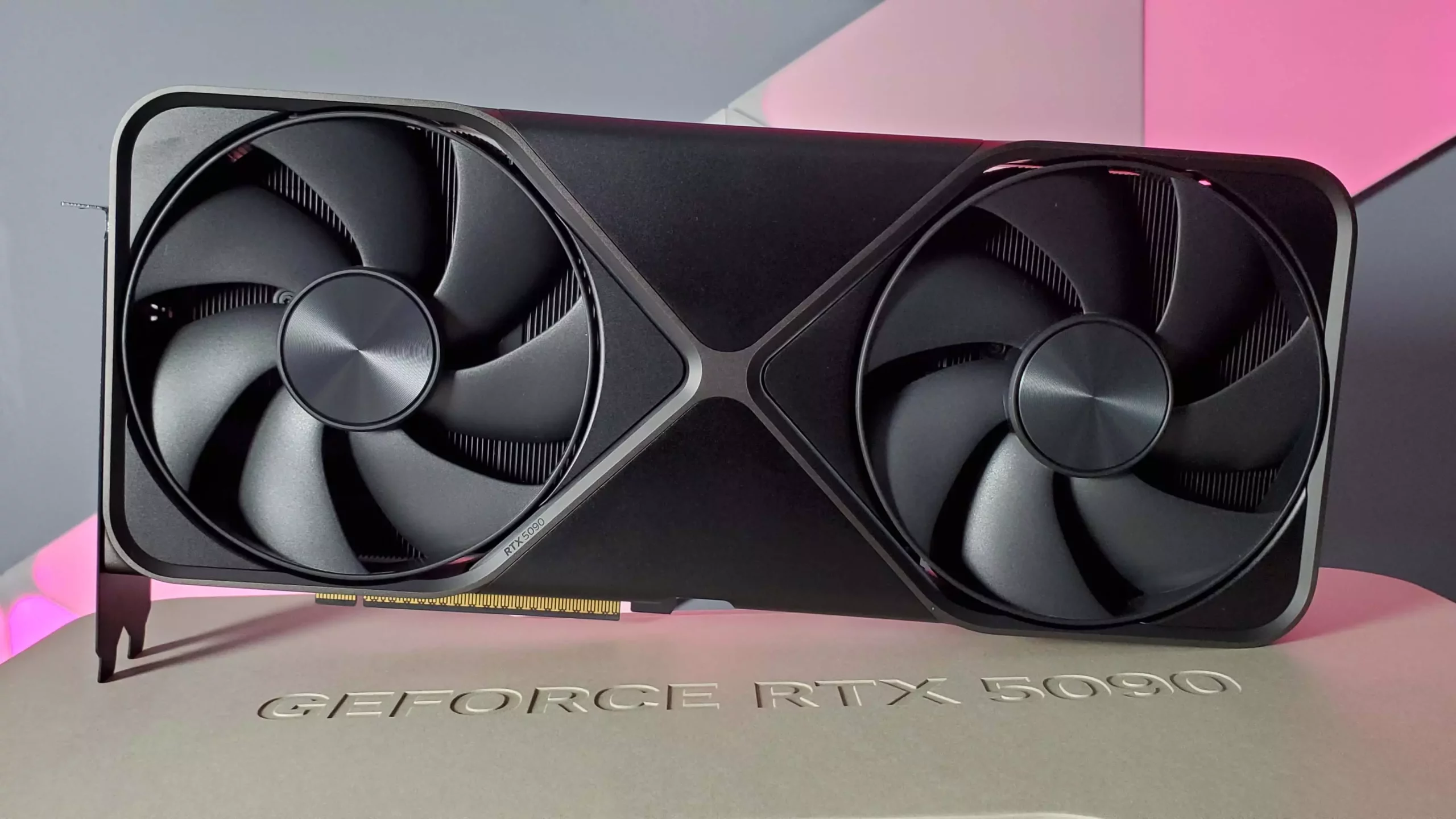In the rapidly evolving world of computing hardware, graphics processing units (GPUs) have become a focal point of contention. The soaring demand coupled with supply-chain disruptions has led to a notorious rise in scalping; bots buying up available inventory and reselling at exorbitant prices have left many genuine enthusiasts in despair. In response, companies have been forced to adopt peculiar methods to ensure that these coveted components reach the hands of gamers and creators rather than opportunistic scalpers. However, a recent development in Japan has sparked both intrigue and skepticism with its unprecedented purchase policy for GPUs.
Japan’s Unique Approach to GPU Sales
As highlighted in reports from VideoCardz and Weibo, a retail store in Osaka has introduced a controversial policy that restricts the sale of the RTX 5090 and RTX 5080 GPUs exclusively to customers who plan to use them within Japan. This decision is encapsulated in a notice that cleverly underscores the retailer’s desire to maintain local availability and prevent the bulk purchase of GPUs for resale outside the country. By enforcing this limitation, the store hopes to counteract the influx of foreign buyers capitalizing on the favorable exchange rates and tax exemptions.
At a staggering price of approximately ¥452,800 (around $3,170), the Zotac RTX 5090 certainly isn’t a trivial purchase. For some foreign travelers, the appeal of avoiding sales tax and snagging a deal on these high-end cards might outweigh the inconvenience of flying to Japan. However, the store’s policy raises crucial questions about the practicality of such restrictions and how they can be effectively enforced.
Practicality vs. Policy: The Enforcement Dilemma
Implementing a policy that limits GPU sales solely to local customers appears bold, yet its enforceability is questionable. How does a store validate the residence of a customer making a high-stakes purchase? The reality is that anyone, even a Japanese national, can easily act as an intermediary for a foreign buyer. There’s little stopping a local from purchasing a GPU and simply handing it over to a visitor after exiting the store—a scenario reminiscent of teens attempting to procure alcohol for their underage friends.
The past decade has taught us that the allure of GPUs is so potent that ingenuity knows no bounds. The lack of a concrete verification process presents significant challenges to any entity attempting to enforce such restrictions.
Historical Context and Retail Trends
Japan is not the only country grappling with demand for GPUs. In the UK, major retailers like Overclockers UK have faced similar dilemmas. They halted sales to international markets during the RTX 30-series launch due to overwhelming demand from local consumers and trade tariffs impacting sales to the US. The nuances vary, but the core issue remains—a clash between resource scarcity and consumer demand that has resulted in a convoluted retail landscape.
However, while some UK businesses opted to restrict sales, they did not take the extreme step of imposing location-based purchasing limitations, thus leaving physical access open to buyers irrespective of origin. As a comparison, this Japanese retailer’s approach seems an exaggerated response to the inherent challenges of the market.
Challenges of Geographic Limitations
The concept of selling products exclusively for local use raises significant philosophical and ethical questions. It emphasizes the retailer’s desire to keep the product local, yet it inadvertently creates an artificial barrier that could alienate potential buyers. The challenges are bound to escalate as technology continues to evolve and the demand for advanced GPUs grows.
Moreover, as more retailers adopt creative methods to combat scalping, one has to wonder: is this local-centric policy the best solution? Or does it hinder more than it helps? As we delve further into the complexities of technology sales, it will be essential to assess whether such restrictions are pragmatic in their execution or simply an exercise in futility.
In an ever-competitive marketplace, the balancing act between ensuring fair access to innovative technology and protecting it from scalpers is no easy feat. Japan’s recent GPU sales restrictions may offer insight into a larger narrative about consumer behavior, market dynamics, and the unintended consequences of regulatory efforts—a trend worth watching as we navigate this intricate landscape.

